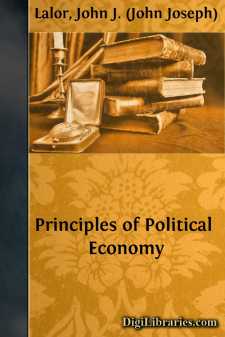Categories
- Antiques & Collectibles 13
- Architecture 36
- Art 48
- Bibles 22
- Biography & Autobiography 813
- Body, Mind & Spirit 142
- Business & Economics 28
- Children's Books 17
- Children's Fiction 14
- Computers 4
- Cooking 94
- Crafts & Hobbies 4
- Drama 346
- Education 46
- Family & Relationships 57
- Fiction 11829
- Games 19
- Gardening 17
- Health & Fitness 34
- History 1377
- House & Home 1
- Humor 147
- Juvenile Fiction 1873
- Juvenile Nonfiction 202
- Language Arts & Disciplines 88
- Law 16
- Literary Collections 686
- Literary Criticism 179
- Mathematics 13
- Medical 41
- Music 40
- Nature 179
- Non-Classifiable 1768
- Performing Arts 7
- Periodicals 1453
- Philosophy 64
- Photography 2
- Poetry 896
- Political Science 203
- Psychology 42
- Reference 154
- Religion 513
- Science 126
- Self-Help 84
- Social Science 81
- Sports & Recreation 34
- Study Aids 3
- Technology & Engineering 59
- Transportation 23
- Travel 463
- True Crime 29
Our website is made possible by displaying online advertisements to our visitors.
Please consider supporting us by disabling your ad blocker.
A Treatise on Domestic Economy For the Use of Young Ladies at Home and at School
Categories:
Description:
Excerpt
There are some reasons, why American women should feel an interest in the support of the democratic institutions of their Country, which it is important that they should consider. The great maxim, which is the basis of all our civil and political institutions, is, that "all men are created equal," and that they are equally entitled to "life, liberty, and the pursuit of happiness."
But it can readily be seen, that this is only another mode of expressing the fundamental principle which the Great Ruler of the Universe has established, as the law of His eternal government. "Thou shalt love thy neighbor as thyself;" and "Whatsoever ye would that men should do to you, do ye even so to them," are the Scripture forms, by which the Supreme Lawgiver requires that each individual of our race shall regard the happiness of others, as of the same value as his own; and which forbid any institution, in private or civil life, which secures advantages to one class, by sacrificing the interests of another.
The principles of democracy, then, are identical with the principles of Christianity.
But, in order that each individual may pursue and secure the highest degree of happiness within his reach, unimpeded by the selfish interests of others, a system of laws must be established, which sustain certain relations and dependencies in social and civil life. What these relations and their attending obligations shall be, are to be determined, not with reference to the wishes and interests of a few, but solely with reference to the general good of all; so that each individual shall have his own interest, as well as the public benefit, secured by them.
For this purpose, it is needful that certain relations be sustained, which involve the duties of subordination. There must be the magistrate and the subject, one of whom is the superior, and the other the inferior. There must be the relations of husband and wife, parent and child, teacher and pupil, employer and employed, each involving the relative duties of subordination. The superior, in certain particulars, is to direct, and the inferior is to yield obedience. Society could never go forward, harmoniously, nor could any craft or profession be successfully pursued, unless these superior and subordinate relations be instituted and sustained.
But who shall take the higher, and who the subordinate, stations in social and civil life? This matter, in the case of parents and children, is decided by the Creator. He has given children to the control of parents, as their superiors, and to them they remain subordinate, to a certain age, or so long as they are members of their household. And parents can delegate such a portion of their authority to teachers and employers, as the interests of their children require.
In most other cases, in a truly democratic state, each individual is allowed to choose for himself, who shall take the position of his superior. No woman is forced to obey any husband but the one she chooses for herself; nor is she obliged to take a husband, if she prefers to remain single....














